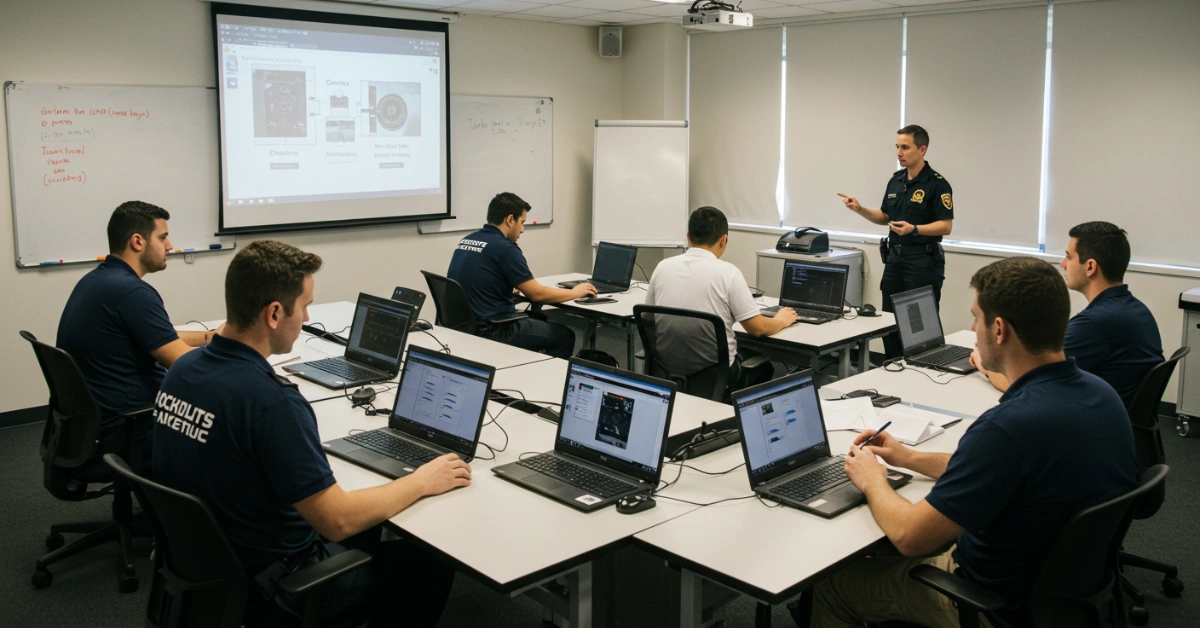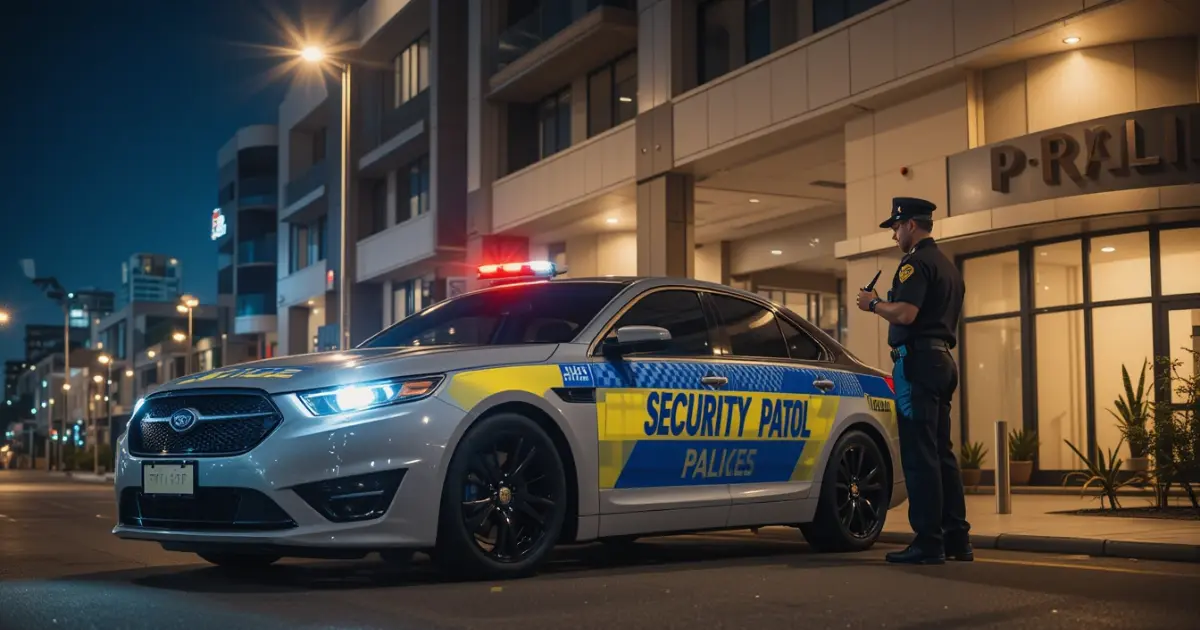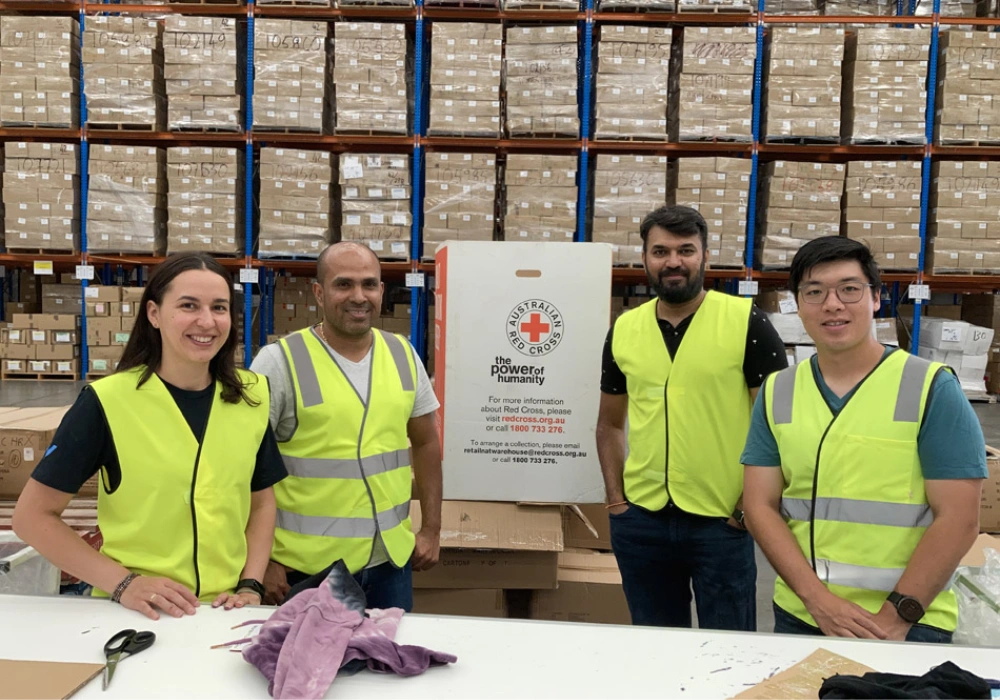Melbourne is one of Australia’s fastest-growing cities. With more businesses, events, and public spaces, the need for trained security professionals has never been higher. CCTV operators play a key role in keeping places safe.
According to recent reports, the security industry in Victoria is expected to grow by 12% over the next five years. This means more jobs, better pay, and more opportunities for trained workers.
For example, large events like the Melbourne Cup or international sports matches require hundreds of security staff. Airports, shopping centers, and banks also rely on CCTV systems to monitor activity. If you’re looking for a stable career, this field is a great choice.
1. What Career Opportunities Exist in Melbourne’s Security Industry?
After completing a CCTV course, you can work as:
- A CCTV operator in the control room
- A security guard with surveillance skills
- An alarm technician who installs and maintains systems
- A freelance security consultant for events or private clients
Many people start in entry-level roles and move up to team leader or management positions over time. Some even open their security businesses!
2. What Are the Basics of Surveillance Training?
A CCTV course teaches you how to use cameras, monitors, and recording devices. You’ll learn to:
- Set up cameras in different locations
- Watch live video feeds
- Record and store footage securely
- Report incidents to authorities
This training is hands-on. You’ll practice using real equipment in classrooms or online simulators.
Which Core Modules Are Typically Included in CCTV Programs?

Most courses in Melbourne include:
- Camera Types and Setup: Learn about dome cameras, bullet cameras, and hidden cameras.
- Monitoring Techniques: Practice watching multiple screens at once.
- Legal Requirements: Understand privacy laws and ethical rules.
- Incident Reporting: Write clear reports for police or employers.
- Emergency Response: Stay calm during break-ins, fires, or accidents.
Some schools also teach first aid or conflict resolution as part of the program.
3. Is a CCTV Course Suitable for Aspiring Security Operators?
Yes! If you’ve never worked in security before, this course is your first step. It gives you the skills employers want.
Can Technicians Upskill Through CCTV Training?
Definitely. If you already work as an electrician, IT technician, or alarm installer, this course adds new skills to your resume. You’ll learn how to combine technical knowledge with security practices.
Is This Training Ideal for People Looking to Change Careers?
Absolutely! Many people switch to security because it offers:
- Flexible hours
- Job stability
- Competitive pay
- Opportunities for growth
No prior experience is needed. Just a willingness to learn!
4. How Does a CCTV Course Help Develop Surveillance Skills?
You’ll gain hands-on experience with:
- High-tech cameras and software
- Real-time monitoring tools
- Incident documentation systems
These skills are used daily in security jobs.
Will Completing This Course Improve My Job Prospects?
Yes! Employers prefer hiring people with formal training. A certificate shows you’re serious about the job.
Does CCTV Training Ensure Compliance with Industry Standards?
Yes. You’ll learn about:
- Australian privacy laws (like the Privacy Act 1988)
- Workplace safety rules
- Ethical guidelines for surveillance
This knowledge helps you avoid legal trouble and work professionally.
5. Are Certificate-Level Courses Right for Me?
These are the most popular options. They include:
- Certificate II in Security Operations: A 5–6-week course covering basic skills.
- CCTV Operator Short Course: A 1–2-week program for quick entry into the field.
Both are offered by Registered Training Organizations (RTOs) like Milcom Security Training.
Do Short-Term Skill-Based Training Options Exist?
Yes! Some schools offer:
- Camera Installation Workshops: Learn to mount and wire cameras.
- Monitoring Certificates: Focus on live surveillance techniques.
These are great if you only need one skill.
Should I Choose Online or In-Person Classes?
Online courses are flexible and affordable. You can study from home at your own pace.
In-person classes offer hands-on practice with real equipment.
For more details, check out Security Near Me’s guide to online vs. in-person training.
6. How Do I Operate Surveillance Equipment Effectively?
You’ll practice with:
- IP cameras (connected to the internet)
- DVRs (digital video recorders)
- Monitors and control panels
What’s Involved in Monitoring and Incident Reporting?
You’ll learn to:
- Watch multiple screens at once
- Spot suspicious behavior
- Write detailed reports for the police or employers
What Legal and Ethical Guidelines Must I Follow?
You’ll study:
- When and how to record footage
- How to protect people’s privacy
- Rules for sharing video with authorities
7. Which Certifications Are Recognized in Victoria?
Look for courses that offer:
- ASIAL (Australian Security Industry Association Limited) Certification
- ACEMS (Australian Council of Employment & Management Services) Approval
These certifications are respected by employers.
Why Are ASIAL or ACEMS Accreditations Important?
They ensure your training meets national standards. Employers trust these names.
How Do I Identify Reputable Registered Training Organizations (RTOs)?
Check if the school:
- Has a valid RTO number
- Offers job placement help
- Uses up-to-date equipment
8. What Is the Average Price Range for Entry-Level Courses?
Most courses cost between $300–$800. Some schools offer free or discounted options.
What Factors Influence the Cost of CCTV Training?
Prices depend on:
- Course length (e.g., 1 week vs. 6 weeks)
- Equipment included (e.g., practice cameras)
- Location (city vs suburban schools)
For more budget-friendly options, visit Security Near Me’s list of low-cost courses.
9. What Are the Top Training Providers in Melbourne?
- Milcom Security Training: Offers Certificate II in Security and short courses.
- Security Near Me Academy: Affordable online and in-person options.
- ACEMS Training: Known for hands-on workshops.
How Do I Compare Course Duration, Fees, and Outcomes?
Visit their websites or call them directly to ask:
- How long is the course?
- What certification is provided?
- Do they help with job placement?
10. What Are the Pros and Cons of Online Learning?
Pros :
- Study anytime, anywhere
- Lower costs
- Self-paced learning
Cons :
- Less hands-on practice
- Requires self-discipline
What Are the Benefits of Hands-On Classroom Training?
- Practice with real cameras
- Ask teachers questions in person
- Network with classmates
11. Can I Work as a CCTV Operator in Melbourne?
Yes! Jobs are available in:
- Control rooms (monitoring airports, city centers)
- Private security firms
- Retail stores (preventing theft)
Are There Pathways to Security Management Roles?
With 2–3 years of experience, you can become:
- A team leader
- A security manager
- A training officer for new hires
Is Freelance or Contract CCTV Work an Option?
Yes! Many operators work at:
- Music festivals
- Construction sites
- VIP events
✅ Conclusion
A CCTV course in Melbourne is your gateway to a rewarding career in security. With low entry barriers, high demand, and flexible training options, now is the perfect time to start. For more resources, visit Security Near Me or explore our guides on access control systems and alarm monitoring .
12. Frequently Asked Questions (FAQs)
At least 18 years old
Pass a police background check
Have basic English skills



